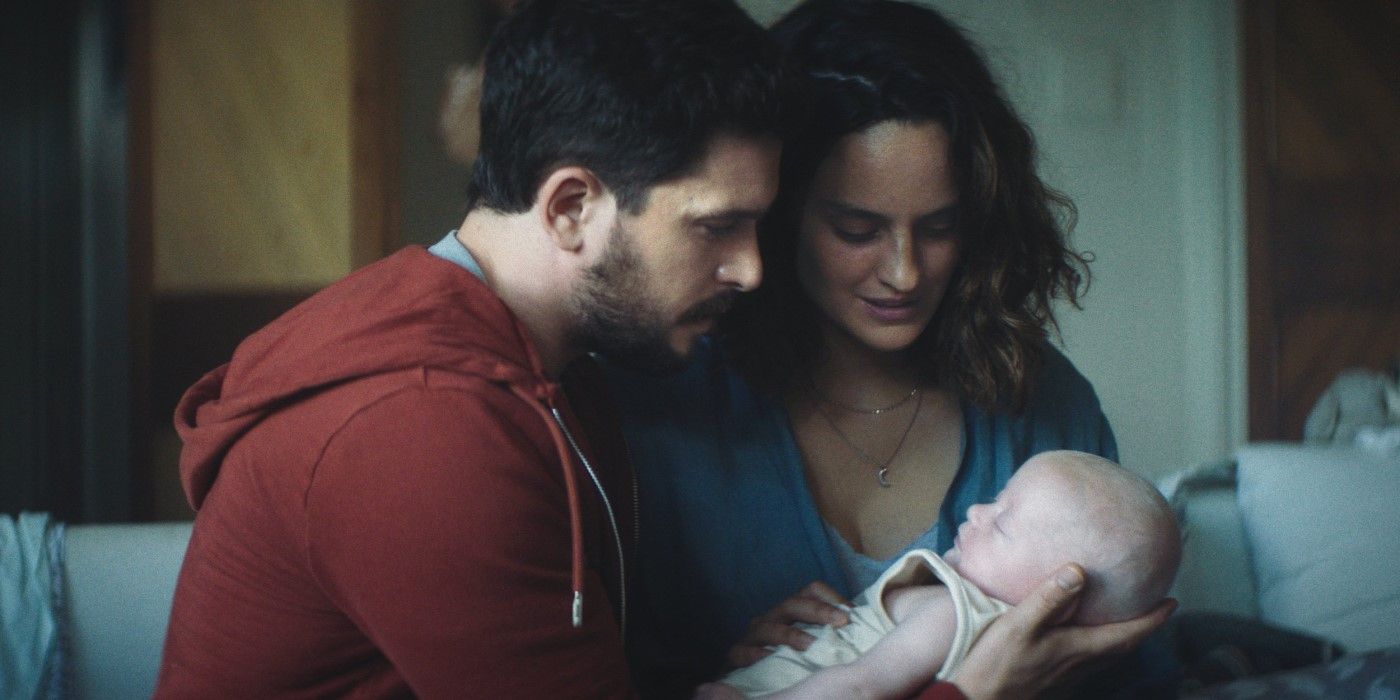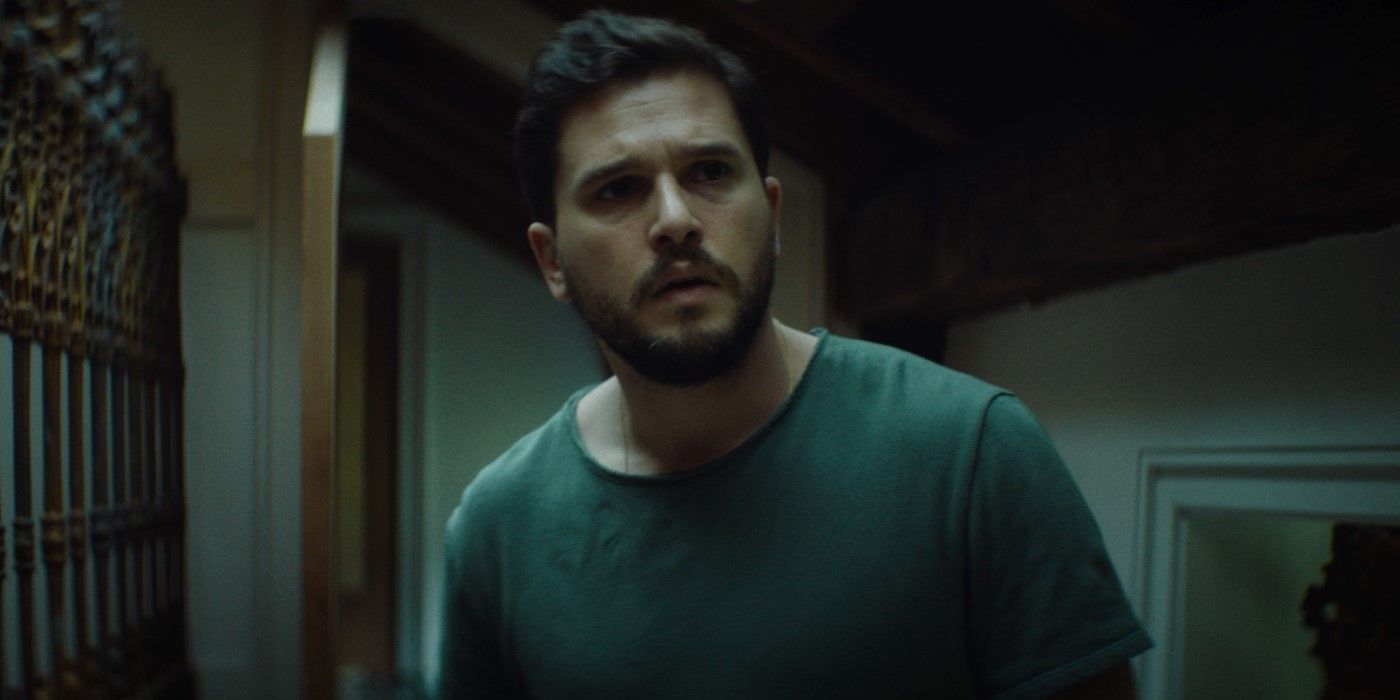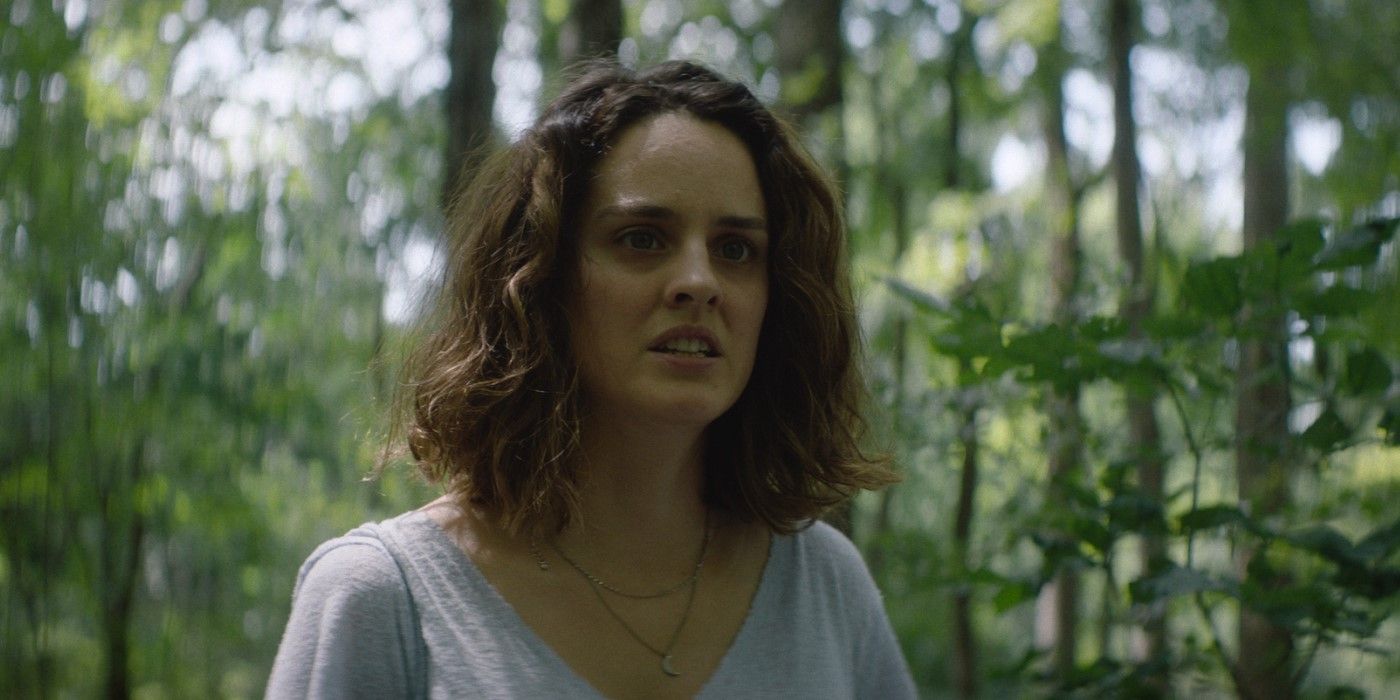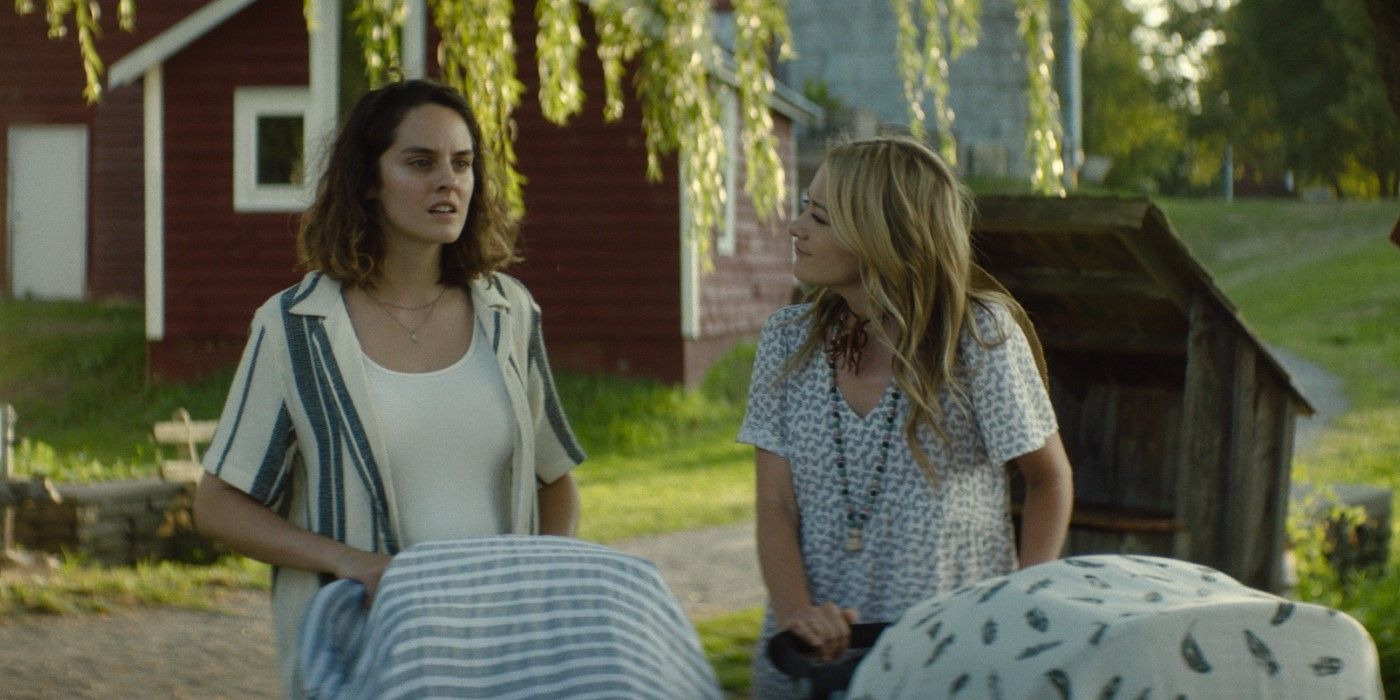The horrors of being a new parent have been mined in scary movies for decades, and playwright Bess Wohl draws from that history for her debut film, Baby Ruby. But while Baby Ruby may look like a horror movie, it gradually reveals itself as a glum, PSA-style drama about mental health. Wohl has noble intentions in raising awareness about postpartum depression and psychosis, but the result is closer to a feature-length pharmaceutical ad than a psychological thriller.
As Baby Ruby opens, Jo (Portrait of a Lady on Fire's Noémie Merlant) seems to have the perfect life. She's a successful influencer and lifestyle mogul with her own carefully curated brand. She's happily married to artisanal butcher Spencer (Game of Thrones' Kit Harington), and they've just moved to a gorgeous, idyllic home in upstate New York. They're eagerly anticipating the birth of their first child, with Jo documenting every step of the preparations online.
That tranquil existence is shattered, in what seems like an instant, when Baby Ruby cuts from the couple's quiet, calm home life to a POV shot of Jo in the hospital, bloody and screaming, as she gives birth to their daughter, Ruby. From there, Jo's life becomes a haze of physical recovery, breastfeeding, and seemingly endless, unstoppable crying from Ruby. Right away, as she and Spencer drive home from the hospital with Ruby, Jo starts having disturbing visions, imagining a passing woman grabbing her baby out of a stroller and hurling it at their car.
It initially seems like Jo is simply having a more intense version of the difficult time that all new mothers deal with, along with an extreme adjustment from her previous meticulously curated luxury lifestyle. There's an effective montage of the repetitive tasks required by a newborn, showing multiple versions of Jo soothing Ruby, feeding her, putting her to bed, and picking her back up, over and over. That makes it easy to understand how mind-numbing it can be for Jo, who opens the front door in a daze one day as her assistant informs her that a month has already passed.
It's more than just fatigue, though. Baby Ruby features all the trappings of a horror movie, from the ominous score to the frequent fake-outs of Jo waking up from a nightmare that seemed real. Baby Ruby recalls horror classics like Rosemary's Baby, movies in which women are gaslit by everyone around them, even though they -- and the audience -- are certain that something is very wrong. Viewers conditioned by horror movies like these will be inclined to give Jo the benefit of the doubt as she starts to suspect that Ruby is somehow punishing her.
Later, Jo's suspicions fall on nearly everyone around her, from her overly helpful mother-in-law, Doris (Jayne Atkinson), to fellow new mother, Shelly (Meredith Hagner), who tries to include Jo in the local moms' group. Even Spencer seems off, despite his gentle understanding and eagerness to share the burden of childcare. Wohl builds a sense of vague unease, but Baby Ruby never settles on any specific danger. There are no references to witchcraft or demons or anything other than a generalized, ever-present threat.
That kind of ambiguity can be creepy, but Baby Ruby isn't ultimately a horror movie, and Wohl pulls back whenever things seem to be veering too closely to full-on horror. Plenty of successful thrillers hinge on whether the apparent danger is real or just in the protagonist's mind. But Baby Ruby is careful not to vilify Jo or make her appear malicious. In its scrupulous efforts to fairly represent mental illness, it becomes repetitive and timid.
Wohl seems to be trying to have it both ways -- to scare the audience with disturbing imagery and impart a serious lesson -- and Baby Ruby ends up in a dissatisfying middle ground. Merlant throws herself into her performance, making Jo believably haggard and desperate, but there's little sense of her as a well-rounded character. Her pre-baby life as an influencer is thinly sketched and unconvincing, and the supporting characters are similarly indistinct, serving mainly as malleable figures for Jo's latest paranoid delusion.
The most affecting acting moment comes not from Merlant but Atkinson, as Doris recounts her own mental torment after giving birth to Spencer. That brief monologue is more honest and direct than anything else in Baby Ruby and conveys a better understanding of postpartum disorders than the rest of the muddled, monotonous movie can manage. As so-called elevated horror has expanded to take on serious topics related to trauma, aging, abuse, and mental illness, Jo's experiences could be the perfect subject matter for a serious horror movie. Instead, the genre trappings only undermine the valuable -- if didactic -- message.
Baby Ruby opens Friday, Feb. 3, in select theaters and on VOD.




